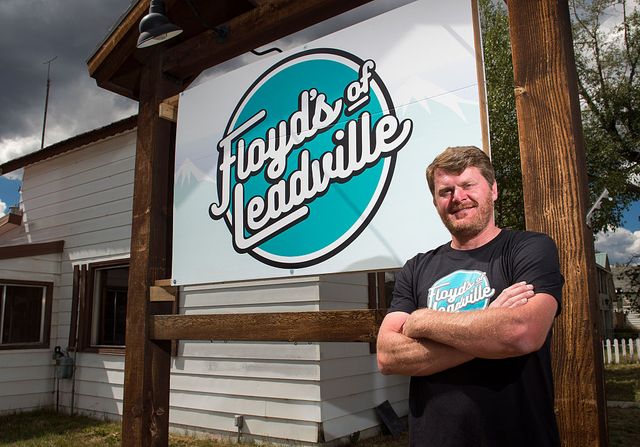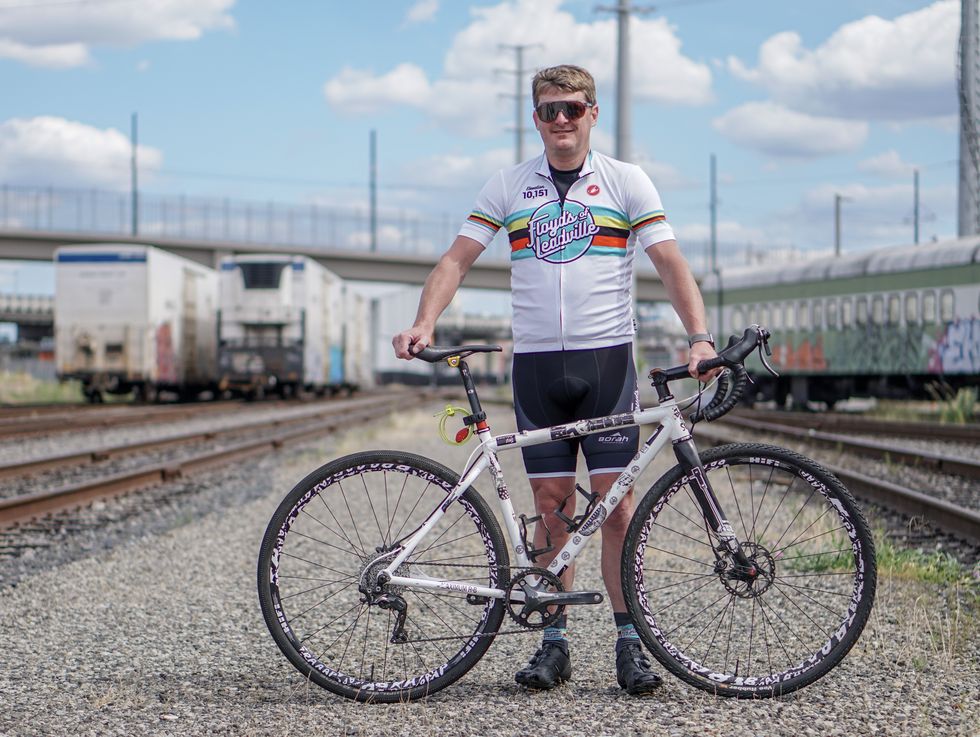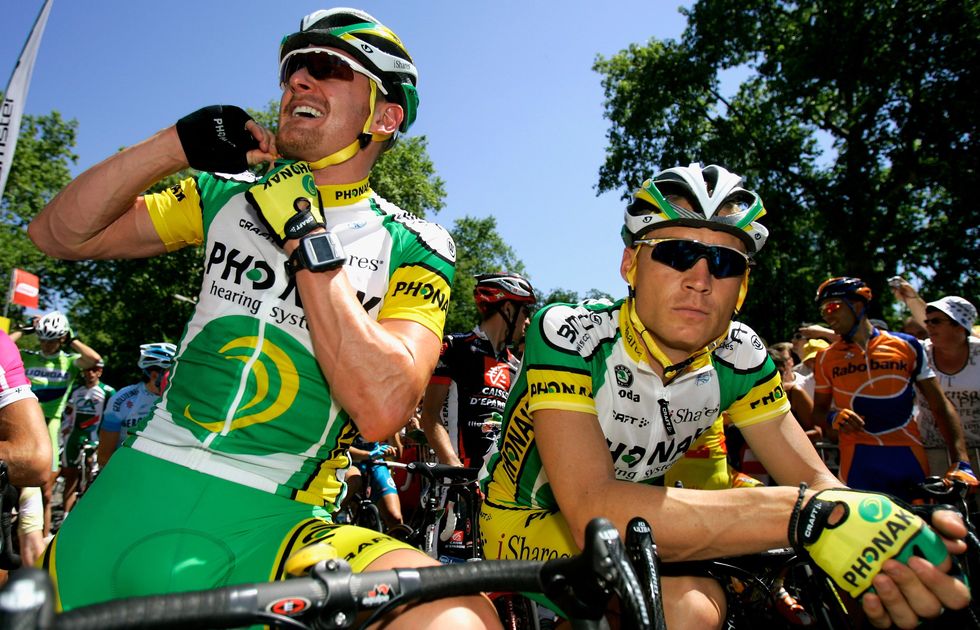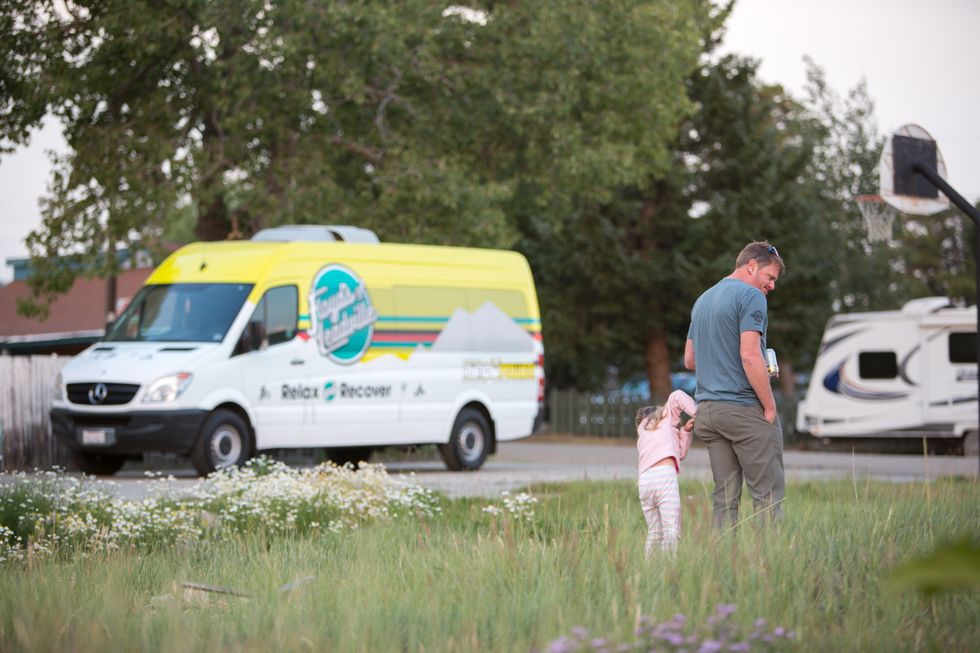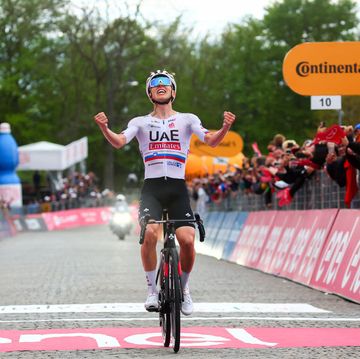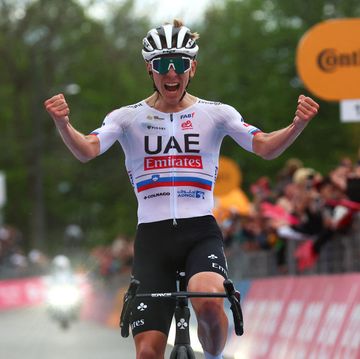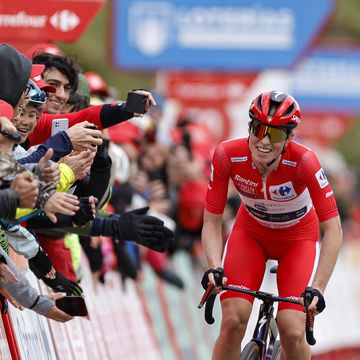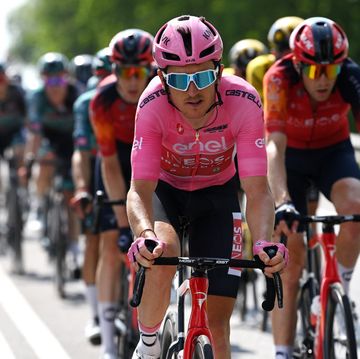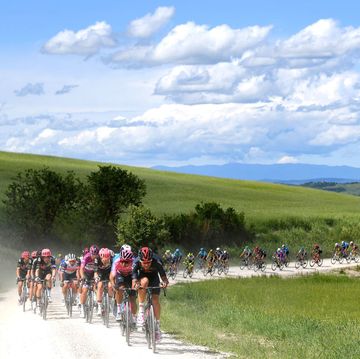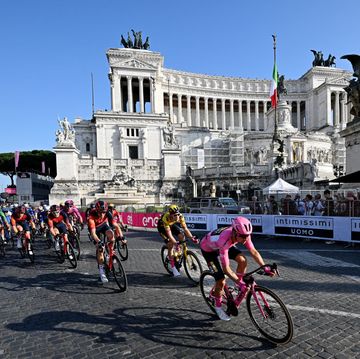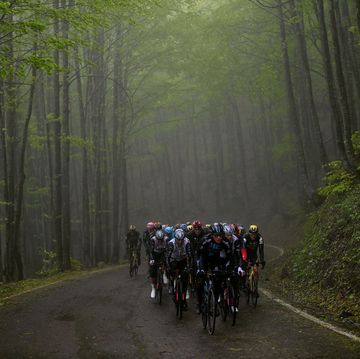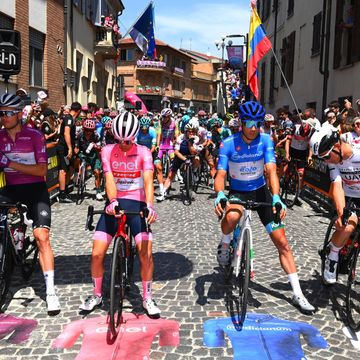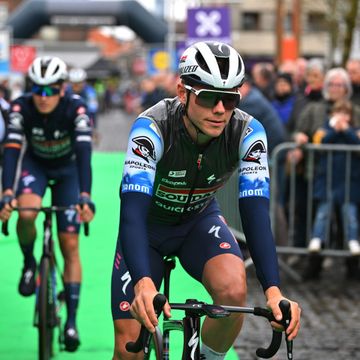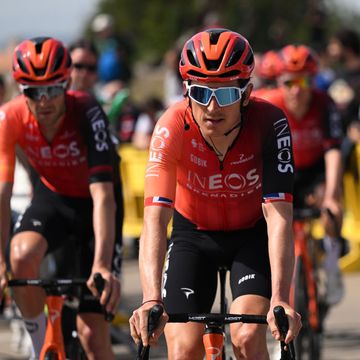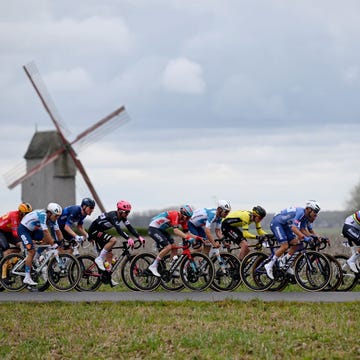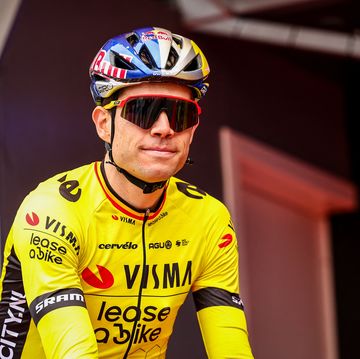This story has been updated.
Floyd Landis wanted closure.
Some people asked if he had it in April, when the lawsuit he brought against Lance Armstrong was finally settled. After all, Landis walked away with $1.1 million—his cut of the $5 million settlement Armstrong paid to his former U.S. Postal Service teammate and the federal government. It marked the end of a drawn-out court battle that had begun in 2010, when Landis first brought the suit.
But no, Landis didn’t feel closure then.
His harshest critics were still out there, and the thing they said that got to him most was that Landis had done it all for the money: Doped his way to his 2006 Tour de France win—a title that was later stripped from him for testing positive for testosterone. Wrote the famous 2010 email to USA Cycling that exposed the systemized doping on U.S. Postal, implicating himself, Armstrong, and other teammates. Sued Armstrong, with the federal government as his co-plaintiff, for defrauding the Postal Service of taxpayer money. With the case settled, Landis had what he wanted, the haters said. He had his big pile of money.
But Floyd Landis didn’t have what he wanted. Because, quite simply, he still felt bad. He had hurt the sport of cycling. He wanted to make things right.
Now, the 43-year-old said he finally feels some of that long-sought closure. On Thursday morning, he announced what he’s doing with the money from the Armstrong settlement. He’s funneling it back into cycling—by starting a UCI Pro Continental team.
“I spent a lot of time through the years thinking about what I could possibly do to demonstrate that this really wasn’t about money,” Landis told Bicycling. “For me, it matters. I can’t buy back my reputation from everyone and this isn’t an attempt to buy it back. It’s the only thing I can really do to demonstrate that, look, cycling did a lot of things for me and it also did a lot of things to me, and I did a lot of things in cycling that I, and a lot of people, to this day still wish didn’t exist.”
The team will be sponsored by Floyd’s of Leadville, the successful mail-order business Landis started in 2016 that sells cannabidiol (CBD) oil, a derivative of hemp that is claimed to have anti-inflammatory and pain-relieving benefits. The team is already licensed with the UCI and will race all major events on the UCI Pro Continental circuit, like the Amgen Tour of California, the Tour of Utah, and the Colorado Classic. The team will also have a presence at events in more popular emerging disciplines, like gravel races, gran fondos, and competitive experiential events like the Haute Route.
Part of the motivation for starting a race team now: Landis believes that cycling needs the help. In 2018, he watched Jelly Belly-Maxxis and UnitedHealthcare—longtime U.S. Continental teams—lose their title sponsorships and fold. At the Colorado Cycling Classic, his old friend and teammate, Gordon Fraser, then directeur sportif for Silber Pro Cycling, invited Landis to ride in the team car during a stage. In the car, Fraser told Landis that Silber was also pulling its sponsorship. Landis watched the team race, mostly young guys, saw how they operated, saw something he might like to be a part of again. He and Fraser conceived of a new start. Landis could help fund a team. Fraser could coach it.
“The sport is really suffering,” Landis told Bicycling. “Cycling goes through cyclical ups and downs, and sometimes they’re extreme. But this [downturn] is exacerbated by what happened in the years that my generation was racing.” He hopes that by starting a team instead of, say, reinvesting the settlement into his business, he can help repair some of the reputational damage he and his former cohort did to pro cycling.
“There were a couple of years there, and it probably continues to this day, when I don’t know if anyone would encourage their kid to get into cycling,” Landis said. “It just looked like a total mess. But it’s still the same sport it was. It added a lot to my life. And I loved it. I wouldn’t trade it for anything. I feel like if I can do something to help to keep some kids employed who are out there trying to race their bikes, still living the dream, it’s got more value over and above that personal value for me.”
Of the $1.1 million Landis received in court, about $750,000 remains after paying off fees related to a separate 2012 lawsuit brought against him by his own defrauded supporters (donors to the Floyd Fairness Fund, which Landis started to cover his legal fees while he fought the 2006 doping charges). That will go directly to the team, and cover what he estimates will be about two-thirds to three-quarters of its first-year annual budget. The remainder will be personally funded by Landis. For the time being, Floyd’s of Leadville will be the title and only sponsor, and Landis hopes to keep it that way, in part to avoid relying on an outside sponsor that could pull out and collapse the team. However, he said he’s open to some assistance from bike and equipment brands.
The team will be based in Canada, and Landis was candid on the reasons why. “At the risk of sounding like I still have a grudge, USA Cycling is the same champions’ club,” he said. “It’s the same people running it who were all involved in the doping on the Postal Service team. None of them have ever paid the price for it and I don’t think they should be entitled to even be there, let alone get any money from anything I do. So we’re going to go to the Canadian side—at least I don’t have any baggage there.”
The team roster has yet to be announced, but Fraser will be the team DS, and both he and Landis hope to recruit a younger squad, in particular some riders from the former Silber, Jelly Belly, and UHC teams. Landis is confident that Fraser will provide the kind of leadership he hopes for in his new team.
“I’ve known Gord Fraser a long time,” Landis said. “I used to race with him and I know his position on drugs and ethics and how as a person, you can let cycling take over your life.” The team will have a policy of racing clean, though Landis refuses to make any—in his view, empty—proclamations that the team will go to extra measures like internal testing. (“It’s all a facade anyway,” he said.) “I don’t know that there’s much that the team can do other than have a policy… All we can really do is tell these kids, ‘Here’s what I would do given another opportunity.’ But we’re not gonna make up stories like [some other teams] did [after 2006] and say we’re running a clean team when there’s no real way to substantiate it.”
For those wondering about the sponsorship by Floyd’s of Leadville, it bears mentioning that CBD itself does not contain THC (the active chemical in cannabis that makes you high), and is now on the approved list of substances by the World Anti-Doping Agency. Landis started using CBD as an alternative to prescription medications after retiring from cycling in 2011, when he suffered from depression and chronic pain—a result of a hip ailment—and found himself increasingly reliant on opioids. He said CBD helped him manage his conditions, and he founded Floyd’s of Leadville to share its benefits with other athletes.
Still, it’s worth noting that this week, Landis also opened Floyd’s Fine Cannabis, a chain of three marijuana dispensaries in Portland, Oregon, that is also marketed to athletes. Floyd’s of Leadville and Floyd’s Fine Cannabis will remain two separate business entities, so the marijuana dispensaries will not be related to the team. As for its riders, Landis doesn’t seem too concerned with whether they use the CBD product.
“The guys who will be on the team are relatively young and healthy and probably won’t have the aches and pains that a lot of people use [CBD] as a medication for,” he said. “There’s certainly no requirement for people to use it, they can just get the word out about it. It’s not gonna be like, ‘This CBD is gonna make our cycling team win races.’”
And if you ask Gordon Fraser, exposure for the business seems low on the list of motivating factors for Landis. “Once I got him in the team car [at the Colorado Classic] and he got an inside look at the team and the operations, he got really enthused,” Fraser recalled. “I see it more as an enjoyment thing for him, a way to get back involved in the racing, which he loved.”
For his part, Landis plans to have little involvement in the day-to-day decision-making on the team, leaving most of it to Fraser. “All I really have to add is to give advice to these younger guys, that life is a lot longer than your cycling career,” he said. “There’s a lot of things out there to do when you’re finished, and try not to lose sight of that.”
